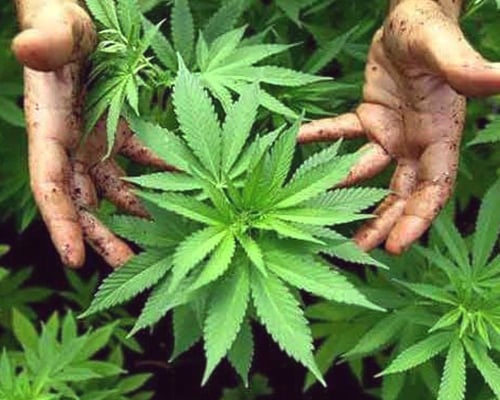The explosion that wounded me during a Taliban ambush in Afghanistan in 2010 left me with a traumatic brain injury and post-traumatic stress. In 2012 I was medically retired from the Marine Corps because of debilitating migraines, vertigo, and crippling depression. After a nine-year career, I sought care from the Department of Veterans Affairs.
At first, I didn’t object to the pills that arrived by mail: antidepressants, sedatives, amphetamines and mood stabilizers. Stuff to wake me up. Stuff to put me down. Stuff to keep me calm. Stuff to rile me up. Stuff to numb me from the effects of my wars as an infantryman in Iraq and Afghanistan. Stuff to numb me from the world all around.
The T.B.I. brings on almost daily migraines, and when they come, it’s as if the blast wave from the explosion in Afghanistan is still reverberating through my brain, shooting fresh bolts of pain through my skull, once again leaving me incapacitated. Initially, the prescriptions helped — as they do for many veterans. But when I continued to feel bad, the answers from my doctors were always the same: more pills. And higher dosages. And more pills to counteract the side effects of those higher dosages. Yet none of them quite worked.One thing did. In 2013, a friend rolled a joint and handed it to me, urging me to smoke it later. It will relieve your symptoms, he promised. That night I anxiously paced around my empty house. I hesitated to light it up because I’d always bought into the theory of weed as a “gateway drug.” But after a few tokes, I stretched out and fell asleep. I slept 10 hours instead of my usual five or six. I woke up feeling energized and well rested. I didn’t have nightmares or remember tossing or turning throughout the night, as I usually did. I was, as the comedian Katt Williams puts it, “hungry, happy, sleepy.”
With the help of my civilian psychiatrist, I began trading my pill bottles for pipes and papers. I also began to feel less numb. I started to smile more often. I thought I had found a miracle drug. There was just one problem: That drug was illegal.
In 21 states, including North Carolina, where I live, any use of marijuana is forbidden under state law. The current punishments for those who possess or cultivate cannabis — even for medical purposes — may include a felony conviction and imprisonment, loss of child custody and permanent damage to their livelihood. The V.A. encourages veterans to discuss their cannabis use with their doctors, but because cannabis is also prohibited under federal law, the V.A. cannot prescribe it in any form — thereby denying countless veterans relief to many mental health symptoms and other service-connected disabilities.
The medical benefits of marijuana for the more than 360,000 post-Sept. 11 veterans who have brain injuries are not universally recognized. (As many as one in five veterans are thought to have post-traumatic stress.) But medical experts like Dr. Frank Ochberg, a psychiatrist and former associate director of the National Institute of Mental Health, believe that “medical marijuana absolutely belongs in the pharmacy for post-traumatic stress and brain injury treatment.” The V.A., Dr. Ochberg said, “is failing veterans by not making cannabis a treatment option.”
In recent years, the V.A. has worked to reduce the number of opioids prescribed to veterans and increase the promotion of alternative therapies such as yoga and mindfulness, and it has made significant improvements in access to health care. Dr. David Shulkin, the V.A. secretary, has publicly supported the evaluation of emerging cannabis research, acknowledging that patients may benefit from marijuana use. But the department is prohibited from prescribing medical cannabis for veterans even in states where it is legal. (In those states, veterans can get prescriptions from private doctors, but at their own expense.)
Most of the major veterans groups, including the American Legion, Iraq and Afghanistan Veterans of America, Veterans of Foreign Wars and Disabled American Veterans, support regulated research into the medical uses of cannabis. But the research is slow in coming: Since 1968, the University of Mississippi has been home to the only licensed facility to produce cannabis for clinical research. In March it was reported that the university’s cannabis was contaminated with lead, yeast and mold — substances that jeopardize research efficacy and patient safety.
What I know is that it works for me. If I hadn’t begun self-medicating with it, I would have killed myself. The relief isn’t immediate. It doesn’t make the pain disappear. But it’s the only thing that takes the sharpest edges off my symptoms. Because of cannabis, I’m more hopeful, less woeful. My relationship with my wife is improving. My daughter and I are growing closer. My past is easier to remember and talk about. My mind is less clouded. More than anything, it feels good to feel again. My migraines and depression don’t control my life. Neither do pills.
But I live in fear that I will be arrested purchasing an illegal drug. I want safe, regulated medical cannabis to be a treatment option. Just like the sedatives and amphetamines the V.A. used to send me by mail. And the opioids they still send to my friends.
Thomas James Brennan, a former sergeant in the Marine Corps, is the founder of The War Horse, a veterans’ news site, and a co-author of “Shooting Ghosts : A U.S. Marine, a Combat Photographer, and Their Journey Back from War.”
Thomas James Brennan, a former sergeant in the Marine Corps, is the founder of The War Horse, a veterans’ news site, and a co-author of “Shooting Ghosts : A U.S. Marine, a Combat Photographer, and Their Journey Back from War.”

No comments:
Post a Comment